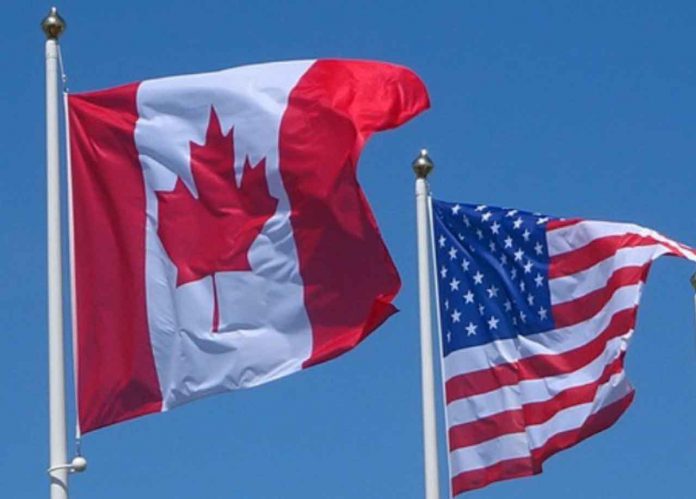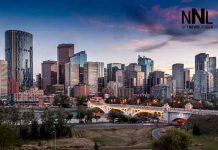Marooned by geography, residents struggle to stay afloat amid continued isolation along the Canadian-American border
By Moira Warburton
VANCOUVER – (Reuters) – They are small towns along the Canadian-American border, marooned by geography, whose residents’ lives have already been upended by the border closure due to the coronavirus pandemic.
But with winter approaching, residents of Campobello Island in Canada’s Atlantic province of New Brunswick and the small U.S. town of Point Roberts in Washington state are bracing for continued isolation adding to winter blues, exposing how tightly intertwined are communities that straddle an international border.
Campobello Island, located off the coast of the U.S. state of Maine, is accessible only by a private ferry service that runs during the summer or by driving through Maine, which connects to the island via a bridge.
The lack of easy access to the rest of Canada has long been an issue, but is compounded by the pandemic, said Justin Tinker, 34, a civil engineer whose family has lived on Campobello Island for 10 generations.
Residents of the island have to pass through the United States to go to a hospital on the Canadian mainland, but they now could wind up being turned away from the hospital because they’ve been to the U.S. within the last two weeks, Tinker said.
“Campobello’s always come together when it needs to, but there’s anxiety,” said Tinker, who blames the province for dragging its feet on the lack of a solution. “Once that ferry stops running we can’t get to Campobello Island within our own province.”
Across the continent, Point Roberts, a town of around 1,300 year-round residents in Washington state, sits on the tip of Canada’s Tsawwassen Peninsula. Its proximity to Canada has made the local economy reliant on Canadian visitors, but also means that locals rely on an open border to access healthcare and other facilities.
“We have five gas stations. We don’t have five gas stations for 1,000 people,” said Christopher Carleton, fire chief for Point Roberts, explaining the reliance on Canadians, who cross the border to buy gas that is roughly a third cheaper.
KIDS AND ISOLATION
Carleton has been raising the alarm about an impending mental health crisis among residents in Point Roberts as their isolation looks likely to drag on into the winter. His efforts bring more attention to the plight of Point Roberts residents, though pressure on state and federal politicians hasn’t paid off so far.
Washington state Governor Jay Inslee wrote to Canadian Prime Minister Justin Trudeau in August, asking him to address the “unique hardships” faced by Point Roberts residents.
Beth Calder, 48, manages Point to Point Parcel, a package receiving business mainly serving Canadians who drive to Point Roberts to collect parcels, dodging expensive or unavailable international shipping.
“Without the Canadians coming down and using our service, it’s crippling our company,” Calder said, citing a 90% drop in business as soon as the border closed.
She described life in Point Roberts during the pandemic as “eerie.”
“If we can’t get back to what was normal, I don’t see how we can survive,” she said.
Sandra Procter, 52, another Point Roberts resident, said she has cried every day since she and her husband made the decision to send their 16-year-old son to live with friends on the Canadian side of the border in late August so he can continue attending school in Vancouver, British Columbia. Point Roberts’ school only goes up to Grade 3, after which age children attend schools in Washington or Canada.
Although education was considered an essential reason to cross the border in June, when schools in British Columbia reopened, that’s no longer the case.
Public Safety Canada said the policy barring Americans from crossing the border for school will remain in place as long as the border closure continues. The U.S.-Canada border is closed for non-essential travel until Sept. 21.
The change in policy “came out of the blue,” Procter said. “For the mental health of a 16-year-old, being as isolated as he is here, it’s not healthy.
“We’re not asking for the border to be opened up, we’re just asking that our kids’ education is considered essential.”
(Reporting by Moira Warburton in Vancouver; Editing by Denny Thomas and Leslie Adler)







